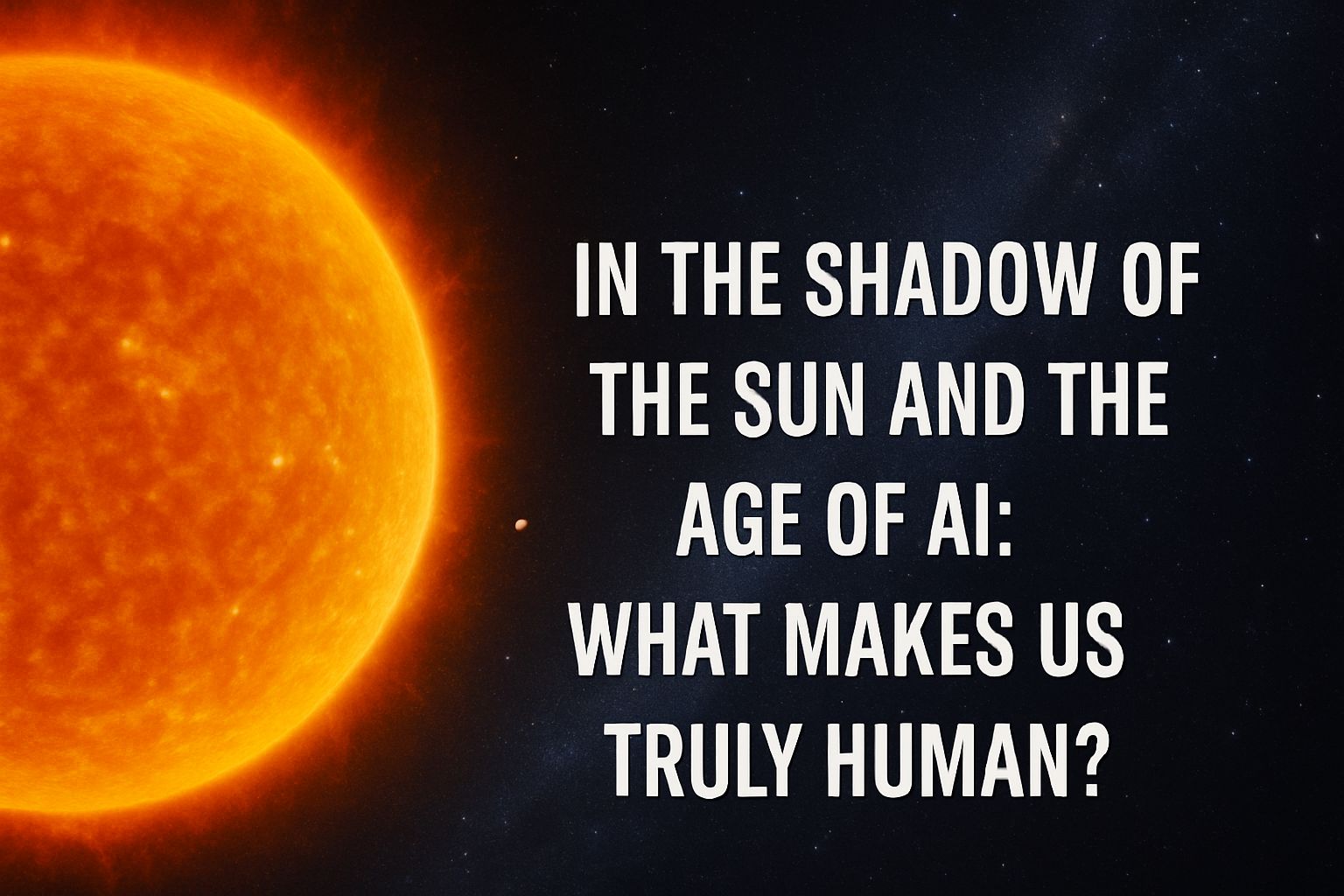When you look at an image comparing Earth to the Sun, something shifts inside you. That small dot—that’s where every story has ever unfolded. Every war, every invention, every act of love, every heartbreak, every dream. All of human history compressed onto that tiny speck, suspended in a vast, silent ocean of space.
The Sun dwarfs us. And yet, the Sun itself is just one star among hundreds of billions in our galaxy—a galaxy that is one among trillions. In this incomprehensible immensity, we—eight billion individuals clinging to a fragile planet—insist on our importance. We build civilizations, empires, and now machines that can think, learn, and even create.
But here’s the unsettling question: what happens when those machines surpass us?
The Illusion of Centrality
For most of history, humans assumed they were the center of everything. We believed the Sun revolved around Earth. We believed the stars existed to decorate our night sky. Science humbled us, revealing our planet as a mere grain of sand in a cosmic desert. And yet, even as our significance shrinks in the physical universe, we try to assert it through technology.
Artificial Intelligence is our latest monument to human ingenuity—a breathtaking attempt to replicate and even surpass our own intelligence. We’ve built systems that can diagnose diseases, compose symphonies, and generate poetry. AI can write better essays than most students, design better products than most engineers, and even hold conversations indistinguishable from humans.
So if everything we claim makes us unique—reason, creativity, language—can now be simulated by machines, what then is left of us?
When AI Does Everything
For centuries, we equated human worth with capability. We worked, we built, we created. Now imagine a world where AI handles every task better than we ever could. What happens to our sense of self when productivity is no longer our differentiator?
If machines compose music that moves us to tears, if they write novels that win prizes, if they invent cures for diseases—then what role do we play? In trying to make life easier, are we also making our existence meaningless?
This is not just a technological question. It’s an existential one.
The Cry for Meaning
Even before AI, humans were haunted by the question of meaning. We are a species aware of its mortality, aware of its smallness in an infinite cosmos. We build telescopes to scan the universe and microscopes to probe the cell—but the biggest question remains unanswered: Why are we here?
Our smallness amplifies this question. Look at Earth next to the Sun. Look at the Sun next to a red supergiant. Then think of yourself—a single human among billions, alive for a fleeting moment in cosmic time. And yet, in this brief existence, we yearn for purpose. That yearning is not a bug in the system. It’s the essence of our humanity.
Back to the Origin
To find meaning, we must go back to the origin. Not just the origin of life, but the origin of purpose. Machines can process data, but they do not long for significance. They do not wonder why they exist. They do not look at the stars and feel small yet deeply connected.
That is what makes us human. Not intelligence, but consciousness. Not productivity, but love, empathy, and the hunger for meaning. These are not functions to optimize; they are experiences to embrace.
So perhaps our significance is not in what we can do but in what we can be—aware, alive, connected.
The Final Thought
AI may redefine work. It may even redefine knowledge. But it cannot replace wonder. It cannot replicate the silence of standing under a sky full of stars, feeling your heart swell with awe. It cannot take away the mystery that makes life beautiful.
In the shadow of the Sun, in the age of AI, our greatest task is not to prove our superiority—but to rediscover our essence. To remember that meaning is not manufactured. It is lived.
So next time you look at that image—the Sun blazing, Earth a speck—don’t feel small. Feel rare. Because you are.


